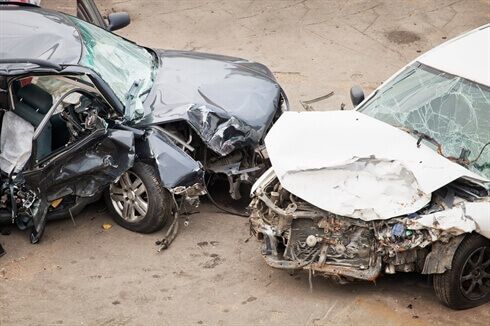 In any crash involving a drunk driver, there is always the potential risk for serious injuries. Unfortunately, this also means there is a chance that the drunk driving crash may result in fatality. This is an all too common occurrence on the roads. According to the Office of the Assistant Secretary for Research and Technology, Bureau of Transportation Statistics, three people are killed as the result of drunk driving highway collisions every two hours.
In any crash involving a drunk driver, there is always the potential risk for serious injuries. Unfortunately, this also means there is a chance that the drunk driving crash may result in fatality. This is an all too common occurrence on the roads. According to the Office of the Assistant Secretary for Research and Technology, Bureau of Transportation Statistics, three people are killed as the result of drunk driving highway collisions every two hours.
The bureau conducted a study between 2001 and 2010 to determine the amount of fatalities involving alcohol-related collisions. In 2010, drunk driving crashes resulted in 13,365 nationwide deaths. Of these crashes, 2,020 involved pedestrian fatalities, 209 involved bicyclists, and 11,087 involved other vehicles and passengers. This number went down in 2014, when 9,967 individuals were killed as a result of drunk driving collisions. However, 1,070 of these deaths involved children ages 14 and younger.
There have been numerous programs and actions brought forth to help deal with drunk driving collisions such as the Zero Tolerance Law adopted by many states and the use of DUI checkpoints. These are designed to help reduce the number of collisions caused by drunk driving and help prevent the driver from recklessly taking the wheel again. Also, the use of ignition interlock devices can be helpful. These devices are often ordered by the court after a DUI and require the driver to blow into a breathalyzer before the vehicle can be started. If the driver’s blood alcohol content (BAC) level is above the legal limit, the car will not start.
Who is Liable?
Determining liability depends on the situation. Many times, liability falls on the drunk driver who causes the accident. This could be someone traveling from their home to a store or someone who is drinking while driving and becomes too intoxicated to properly operate their vehicle. In these cases when the driver drinks and causes a fatal crash, the driver is responsible for the damages sustained and may be the subject of a wrongful death claim.
There are times, however, when another party may be held accountable, as well.
In these situations, the most common lawsuit brought forth is one under dram shop liability. This is a term not many people recognize. In Texas, dram shop liability can be used in addition to the civil suit against the drunk driver. It holds an establishment or other seller of alcohol accountable if they served alcohol to a visibly drunk individual. If it was obvious that the individual presented a danger to him or herself, as well as others on the road, the bar, liquor store, or other establishment should refuse the transaction.
Drunk driving collisions are extremely serious. If the injury is severe or a fatality is the result, it’s important to make sure your or your family member’s rights are protected. By hiring a Dallas wrongful death attorney, you can take the necessary legal action to hold the liable parties financially accountable for their negligence. Making sure you have the necessary representation can help you prove that the individual was drunk and beyond the legal BAC limit, the intoxication was the direct cause of the accident, and the accident was the direct cause of the injury.
If you lost someone you love as a result of a drunk driving collision, call Aldous \ Walker today. We take these crashes seriously. We want to help the families of fatal crash victims seek the justice they deserve and the compensation they need to cover expenses resulting from the fatality. We are here and ready to help you.

